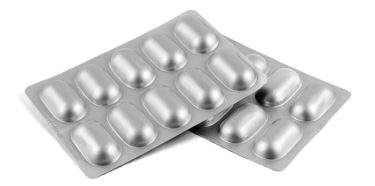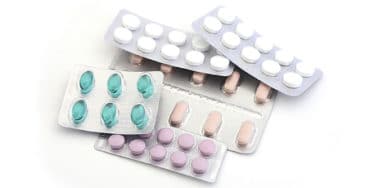Desyrel (trazodone) is an antidepressant used in the treatment of symptoms such as anxiety, loss of appetite, insomnia and attention deficiency caused by major depression. It belongs to a drug class called selective serotonin reuptake inhibitors (SSRIs). Its main feature is that it becomes effective in a period of time as short as one week. Desyrel treatment may be preferred in patients who cannot benefit from other antidepressants. Blurred vision, headache, dizziness, and severe fatigue are common side effects.
Table of Contents
What is (trazodone) Desyrel?
Desyrel is a prescription antidepressant that belongs to the selective serotonin reuptake inhibitors (SSRIs) drug class. These are used to treat depression and anxiety. Its active ingredient, trazodone, balances serotonin levels, a natural chemical secreted in the brain. Its main feature is that it becomes effective in a period of time as short as one week. It is available on the market in tablet form. Tablet forms are 50 mg and 100 mg. The tablets are orange-yellow and notched on one side.
What is trazodone used for?
Areas of use of Desyrel
Desyrel is used to treat the following conditions that can be caused by major depression: (1)
- Depressed mood,
- Loss of appetite
- Low energy
- Anxiety
- Insomnia
- Difficulty in concentrating
How to use trazodone?
How to use Desyrel properly?
- Take your medicine with a glass of water. Do not crush or chew your tablet.
- Take Desyrel after meals to minimize side effects.
- Do not drive or operate heavy machinery if you experience dizziness or drowsiness due to Desyrel,
- Desyrel contains lactose. If you have lactose intolerance, consult your doctor before using Desyrel.
- When starting a treatment, take your first dose in the evening.
- If you forget your dose, take it as soon as you remember. If you have a short time to take the next dose, skip the dose and continue your routine treatment. Do not take a double dose.
- Use your medicine exactly as recommended by your doctor. Do not adjust your dose or stop treatment without consulting your doctor. You may experience severe side effects.
Trazodone dose and dose adjustments
- In adults: The recommended starting dose is 75-150 mg daily. This dose can either be taken in divided doses after meals or at once before bedtime. The maximum daily dose is 300 mg. This dose can be increased up to 600 mg (in divided doses) in in-patient treatments. Your doctor will decide on the duration of the treatment.
- In children: Cannot be used in children under 18 years old.
- In the elderly: The recommended starting dose is 100 mg daily. This dose can either be taken as divided doses after meals or at once before bedtime. If necessary, the dose can be increased gradually. However, it should not exceed 100 mg at a single dose. The maximum daily dose is 300 mg.
Trazodone overdose
Side effects of Desyrel overdose include irregular heartbeat, unusual drowsiness, dizziness, vomiting, dyspnea and seizures. If you take more doses than you should, call your doctor immediately and visit the emergency of the nearest hospital. Do not forget to take the medicine with you.
Drug Interaction of trazodone
Combined use of certain drugs with Desyrel can cause severe side effects or a decrease in the effectiveness of medicines. If you are using one of the following medicines, be sure to inform your doctor before starting a treatment: (2)
- MAOI (monoamine oxidase inhibitors): Tranylcypromine, phenelzine, isocarboxazid, selegiline, etc.
- Other antidepressants: Amitriptyline, fluoxetine, etc.
- Anti-epileptic drugs: Carbamazepine, phenytoin, etc.
- Medicines against hypertension: Clonidine, etc.
- Medicines against fungal infections: Ketoconazole and itraconazole
- Some medicines against AIDS: Ritonavir and indinavir D
- Digoxin (medicines against heart failure)
- Erythromycin (a type of antibiotic)
- St. John’s Wort
- Sedatives
- Levodopa (used against Parkinson’s disease)
- Warfarin (blood thinner)
Trazodone and Alcohol Interactions
Alcohol may increase the side effects of Desyrel on the nervous system such as dizziness, drowsiness, and difficulty in concentrating. It can also affect thinking and impair judgement. Limit alcohol intake or do not consume alcohol at all during the course of a treatment.
Forms and Types of trazodone
Desyrel is available on the market in tablet forms of 50 mg and 100 mg.
Desyrel equivalent drugs
- Trittico: Prolonged-release tablet -75 mg and 150 mg
- Oleptro: Extended-release tablet: 150 mg and 300 mg
Who should not use Desyrel?
Do not use Desyrel if you have any of the following conditions:
- Allergy to the active ingredient of the drug, trazodone, or any of its inactive ingredients,
- Alcohol dependence,
- A recent history of heart attack,
- Being under the age of 18.
Desyrel should not be used in people younger than 18 years old. Selective serotonin reuptake inhibitors (SSRIs) may also have undesirable effects such as suicidal ideation or suicide attempt, aggression and anger in people under the age of 25.
When is trazodone inconvenient?
If you have any of the following conditions, be sure to inform your doctor before starting a treatment:
- Epilepsy
- Severe liver or kidney disease,
- Angina pectoris (chest pain caused by narrowing or blockage in the heart vessels),
- Arrhythmia,
- Hyperthyroidism
- Problems with urination (enlarged prostate etc.),
- Glaucoma
- Other mental disorders (schizophrenia, etc.)
- Old age (side effects may be more severe).
Use of trazodone during Breastfeeding and Pregnancy
Desyrel is not recommended for use during pregnancy and breastfeeding, but your doctor may prescribe it by evaluating risks and benefits. If you are pregnant, breastfeeding or if you realize that you are pregnant during a treatment, consult your doctor. (3)
What are the Side Effects of trazodone?
Serious Side Effects
If you experience any of the following side effects, stop taking the medicine immediately, call your doctor or visit the emergency of the nearest hospital.
- Allergic reaction: Difficulty in breathing and swallowing caused by swelling in hands, feet, face, lips or throat; itching and urticaria (hives)
- Prolonged and painful erection unrelated to the sexual activity in men,
- Jaundice or liver problems: yellowing of the eyes or the skin.
- Agranulocytosis (a blood disease): Having infections more often than usual.
- Thrombocytopenia: Frequent bruising on the skin
- Paralytic ileus (intestinal blockage): Severe abdominal pain, bloating, nausea, vomiting and constipation.
- Serotonin syndrome: Confusion, feeling sick, sweating and trembling, hallucinating, sudden muscle contractions, faster heartbeat
- Neuroleptic Malignant Syndrome: Shortness of breath, difficulty in walking, high fever, chills, uncontrolled muscle twitches.
- Thoughts of suicide or self-harm
- Seizures
- Anemia: Exhaustion, dizziness, lightheadedness, having pale skin
- Paresthesia: Unusual skin sensations such as numbness, tingling, pricking, burning or creeping on the skin
- Irregular heartbeat
Common Side Effects
- Blurred vision
- Confusion
- Headache
- Feeling dizzy or light-headed after standing up quickly while lying down or sitting
- Sweating
- Feeling tired
Less Common Side Effects
- Confusion about identity, place and time
- Difficulty in concentrating
- Fainting
- Feeling sick
- Lack of coordination
- Muscle tremors
- Irritability
- Tinnitus
- Dyspnea
Desyrel Package Insert
You can get more detailed information about the medicine via this link>>.




